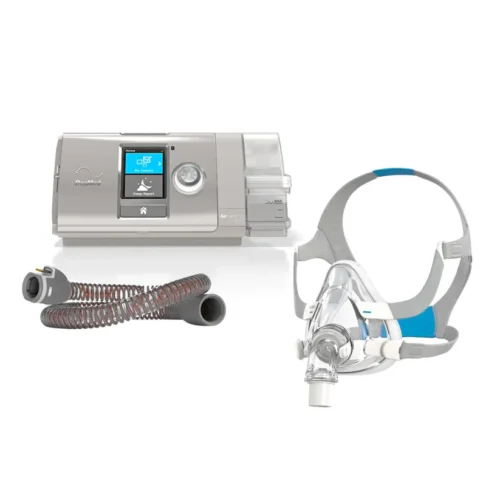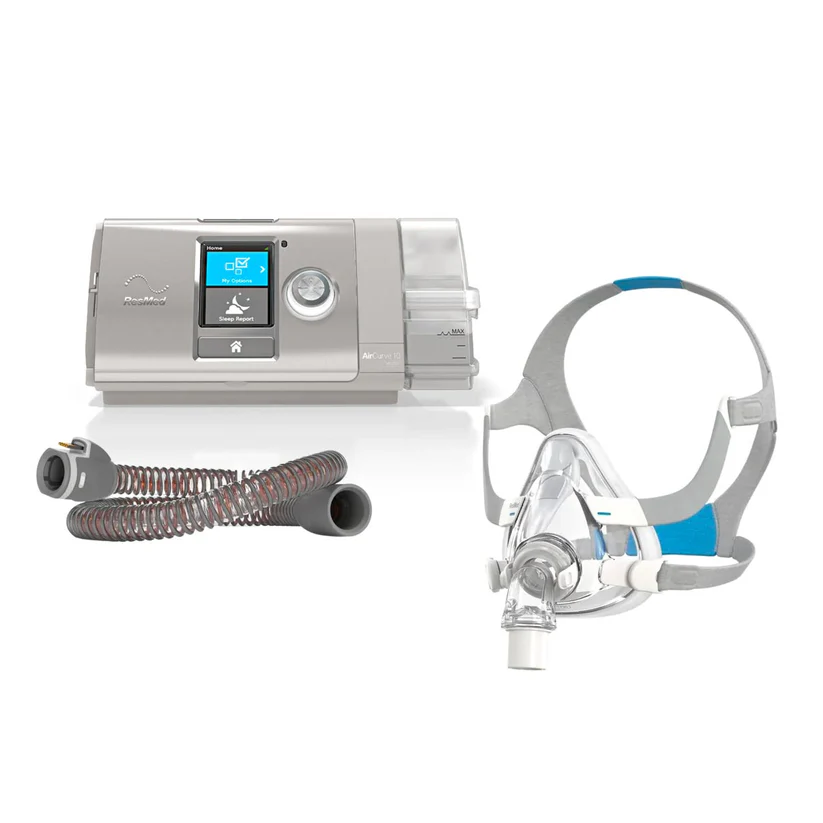ACROBiosystems & Diagnostic Biochips Transform Neuroscience Drug Discovery
Diagnostic Biochips leverages advanced neural probes to enhance neuroscience research. These advanced probes, combined with AI-powered data analysis, offer precise...
How to Tell If Your Dog is in Pain
Behavioral Changes
Dogs are typically energetic and social creatures, but if they are not feeling well, they suddenly withdraw, become lethargic, or avoid interaction, just like how humans react to a situation. Changes in the behavior are not only unusual actions, but they may also growl, snap or even get agitated in a situation where they wouldn't normally react; if so, it has to be treated as soon as possible. If they are whining, whimpering or licking a specific area, they communicate their distress. Paying close attention to its daily behavior and treating the discomfort could soon let them relax to a normal state. (more…)The moon boot's purpose is to relieve the pressure on the injured foot, which means your other foot and leg...
4 Key Symptoms to Look Out for as the Earliest Signs of Glaucoma
 Glaucoma is often called the "sneak thief of sight," and that name fits. Many folks don't know they have it until it's too late. Spotting the earliest sign of glaucoma can help save your vision and get you the care you need.
Let's explore four important symptoms to keep an eye out for and discuss why catching glaucoma early is so crucial for keeping your eyes healthy.
Please note everyone should be screened for glaucoma as well as other eye diseases including macular degeneration. Make a regularly scheduled visit to an opthamologist part of your health care routine.
Four Key Symptoms
Glaucoma is a group of eye conditions that can lead to vision loss and are often associated with increased pressure in the eye. Here are four key symptoms to look out for as earliest sign of glaucoma:
Glaucoma is often called the "sneak thief of sight," and that name fits. Many folks don't know they have it until it's too late. Spotting the earliest sign of glaucoma can help save your vision and get you the care you need.
Let's explore four important symptoms to keep an eye out for and discuss why catching glaucoma early is so crucial for keeping your eyes healthy.
Please note everyone should be screened for glaucoma as well as other eye diseases including macular degeneration. Make a regularly scheduled visit to an opthamologist part of your health care routine.
Four Key Symptoms
Glaucoma is a group of eye conditions that can lead to vision loss and are often associated with increased pressure in the eye. Here are four key symptoms to look out for as earliest sign of glaucoma:
- Blurred or Cloudy Vision
The Value of Online Therapy
Sleep Apnea- ResMed AirSense™ 10 AutoSet™ Tri-Pack: A Comprehensive Overview
 The ResMed AirSense™ 10 AutoSet™ Tri-Pack is an essential package designed for individuals with sleep apnea who require consistent and effective therapy. This article delves into the key features benefits and frequently asked questions surrounding the ResMed AirSense™ 10 AutoSet™ Tri-Pack offering a guide to help you understand its significance in sleep apnea treatment.
What is the ResMed AirSense™ 10 AutoSet™ Tri-Pack?
The ResMed AirSense™ 10 AutoSet™ Tri-Pack is a bundle that includes three essential items designed to optimize sleep apnea therapy. The package typically consists of the ResMed AirSense™ 10 AutoSet™ device a humidifier and heated tubing all aimed at improving the comfort and effectiveness of your CPAP therapy. The AutoSet feature ensures that the device automatically adjusts pressure levels based on your needs offering personalized treatment.
(more…)
The ResMed AirSense™ 10 AutoSet™ Tri-Pack is an essential package designed for individuals with sleep apnea who require consistent and effective therapy. This article delves into the key features benefits and frequently asked questions surrounding the ResMed AirSense™ 10 AutoSet™ Tri-Pack offering a guide to help you understand its significance in sleep apnea treatment.
What is the ResMed AirSense™ 10 AutoSet™ Tri-Pack?
The ResMed AirSense™ 10 AutoSet™ Tri-Pack is a bundle that includes three essential items designed to optimize sleep apnea therapy. The package typically consists of the ResMed AirSense™ 10 AutoSet™ device a humidifier and heated tubing all aimed at improving the comfort and effectiveness of your CPAP therapy. The AutoSet feature ensures that the device automatically adjusts pressure levels based on your needs offering personalized treatment.
(more…)10 Unexpected Tricks to Control Your Appetite for Better Health Outcomes
1) Drink Pu Erh Tea
Pu Erh tea is known for its earthy flavor and potential health benefits. Drinking a cup of this fermented tea might help you manage your appetite effectively. It is rich in antioxidants, which can support your overall well-being. Consuming Sheng Pu Erh tea may help regulate your metabolism. Some research suggests that it can aid in fat breakdown, which in turn might help control hunger. Integrating it into your routine could be a beneficial step. To experience these potential benefits, consider having a cup before meals. The tea is typically available in various forms, such as loose leaves or convenient teabags. Choose an option that suits your lifestyle and taste preferences. Make sure to enjoy Pu Erh tea without added sugars or creams to keep calorie counts low. This allows you to enjoy its natural flavors while potentially curbing your appetite. Always consult with a healthcare provider if you have specific dietary restrictions or health concerns. Pu Erh tea can be a simple, enjoyable part of your strategy for appetite control. Please note that Pu Erh tea contains caffeine and like all caffeinated products should be enjoyed in moderation. (more…)Can Wellness Practices Improve Outcomes in Addiction Recovery?
The Medical Benefits of Wellness-Based Addiction Treatment
Incorporating wellness practices into addiction recovery has shown promising outcomes in various studies. Wellness practices are not just about feeling good; they have tangible medical benefits that enhance physical health, mental clarity, and emotional stability, all of which are critical in maintaining long-term sobriety. Substance abuse often wreaks havoc on the body and mind, leading to nutritional deficiencies, weakened immune systems, and deteriorated mental health. Wellness-based treatments, such as balanced nutrition and fitness, help reverse these effects, allowing the body to heal faster. Additionally, stress management techniques like mindfulness meditation and yoga have been proven to lower relapse rates by improving emotional regulation and reducing anxiety.Transforming Healthcare with Advanced Screening Techniques
Why You Need to Go to the Dentist to Prevent Problems
Your oral health is key for your overall well-being. These are the reasons that you need to take your oral well-being seriously and go to the dentist on a regular basis. Getting a cleaning and check-up at least once a year is important for many reasons. Preventing oral health issues requires a complete dental care protocol that you stick to each and every year. (more…)What to Consider Before Breast Cancer Reconstruction Surgery
Breast Reconstructive Surgery:
According to BreastCancer.org, the decision to have breast reconstructive surgery doesn’t have to be decided immediately following surgery to remove the breast. It can be done during mastectomy surgery or following surgery, so those who are uncertain about their decision have time to weigh the options before deciding on their best option. There are many things to consider breast reconstruction surgery, including the toll it will take on your body and how your appearance may change from before until after the surgery. Here are some things to consider if you have undergone a mastectomy. These are presented by Cancer.gov:- Breasts can be rebuilt using implants that contain either saline or silicone. They can also be rebuilt by using tissue elsewhere in the body.
- The surgery can be done at the same time as the mastectomy (an immediate reconstruction) or after the surgery when the skin and incisions have had time to heal. Often, treatment is conducted during this healing time.
- A nipple and areola can be added to the breast during the initial surgery or at a later time.
Understanding Your Human Design Chart: The Basics of Personal Blueprint
 The Human Design chart, at its core, is a graphical representation that illustrates how you are designed to engage with the world. It involves intricate details, like your 'Type,' which is one of the most fundamental aspects of your chart. This Type outlines your role in life and how you best interact with others. It also includes your 'Profile,' a combination of numbers that shed light on your persona and how you walk through the world.
(more…)
The Human Design chart, at its core, is a graphical representation that illustrates how you are designed to engage with the world. It involves intricate details, like your 'Type,' which is one of the most fundamental aspects of your chart. This Type outlines your role in life and how you best interact with others. It also includes your 'Profile,' a combination of numbers that shed light on your persona and how you walk through the world.
(more…)How Permethrin Cream Can Banish the Bugs
- Introduction
- Understanding Permethrin Cream and Its Uses
- How Permethrin Cream Works to Eliminate Parasites
- When Should You Use Permethrin Cream?
- How to Apply Permethrin Cream for Optimal Results
- Side Effects and Safety Considerations
- Tips for Preventing Reinfestation
- Frequently Asked Questions About Permethrin Cream
A Look Into Why Some Baby Formula Companies Have Lawsuits Against Them
Long-Term Outcomes For Patients With Spinal Stenosis
Spinal stenosis affects millions of people and its symptoms can range in severity, with some people not even knowing they...
How to Select a Flat Rate Medical Answering Service for Your Practice
Medical answering services should be however differentiated from other general answering services in that they require specific niche knowledge of...
1. Start Your Day with Mindful Breathing
Beginning your day with a few minutes of mindful breathing can set a positive tone. Mindful breathing helps ground you, making it easier to stay focused and calm as you go about your day. Sit or lie down in a quiet spot, close your eyes, and breathe deeply for a few minutes, focusing only on your breath. This small practice can make a noticeable difference in your ability to manage stress. It encourages you to slow down and become more aware of your thoughts and emotions. When mornings feel rushed or chaotic, mindful breathing can help you regain a sense of balance. (more…)Achy Joints? What Are the Most Common Spots for Arthritis, and How Do You Bounce Back?
Arthritis might be a part of your life, but it doesn’t define you. The key is finding what works best...
ADHD and OCD: Understanding the Key Differences and Overlaps
Understanding the relationship between ADHD and OCD helps people recognize their challenges and seek appropriate help. Whether dealing with one...
 Editor's note: Please check with your obstetrician before seeing a chiropractor.
Pregnancy is an amazing adventure, but it comes with an honest proportion of bodily challenges for expecting mothers. From lower back aches and joint soreness to pelvic misalignment, the body undergoes massive changes that could affect routine lifestyle. Many mothers-to-be are searching out natural, scientific ways to alleviate those pregnancy-associated discomforts, and this is where prenatal chiropractic care comes in. A prenatal chiropractor focuses on assisting pregnant women through tailor-made chiropractic treatments that are gentle, secure, and, in particular, designed to address pregnancy-related issues.
In this blog, we'll explore the potential benefits of prenatal chiropractic care and how it may help the general well-being of each mom and child during pregnancy.
(more…)
Editor's note: Please check with your obstetrician before seeing a chiropractor.
Pregnancy is an amazing adventure, but it comes with an honest proportion of bodily challenges for expecting mothers. From lower back aches and joint soreness to pelvic misalignment, the body undergoes massive changes that could affect routine lifestyle. Many mothers-to-be are searching out natural, scientific ways to alleviate those pregnancy-associated discomforts, and this is where prenatal chiropractic care comes in. A prenatal chiropractor focuses on assisting pregnant women through tailor-made chiropractic treatments that are gentle, secure, and, in particular, designed to address pregnancy-related issues.
In this blog, we'll explore the potential benefits of prenatal chiropractic care and how it may help the general well-being of each mom and child during pregnancy.
(more…)Exciting Fitness and Wellness Apps of 2024 to Elevate Your Body Transformation and Health Goals
Zeamo: Corporate Wellness Made Easy
Zeamo stands out in the corporate wellness space by offering employees access to full memberships and wellness packages at exclusive rates, with no enrollment or annual fees, and no long-term commitments. This setup provides flexibility, allowing users to cancel at any time. In addition to gym access, Zeamo includes a variety of wellness benefits, such as rewards for staying active, discounts on merchandise, and the chance to participate in monthly prize sweepstakes. Companies using Zeamo can engage employees with team-step challenges, promoting group participation in wellness activities. The platform covers a wide range of services, including gym memberships, nutrition programs, meal delivery, and mental wellness apps. Zeamo’s partnerships with organizations like the Mayo Clinic and iFIT ensure access to trusted wellness resources. (more…)How to Stage an Intervention to Help a Loved One Overcome Addiction



























